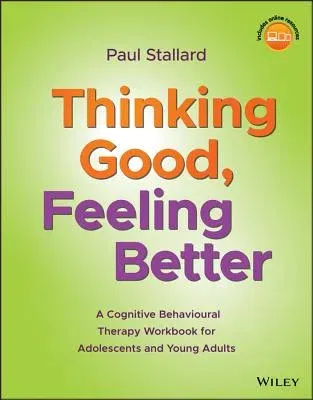Instructional resource for mental health clinicians on using cognitive
behavioural therapy with adolescents and young adults
This book complements author Paul Stallard's Think Good, Feel Good and
provides a range of Cognitive Behaviour Therapy resources that can be
used with adolescents and young adults. Building upon that book's core
strengths, it provides psycho-educational materials specifically
designed for adolescents and young people. The materials, which have
been used in the author's clinical practice, can also be utilized in
schools to help adolescents develop better cognitive, emotional and
behavioural skills.
Thinking Good, Feeling Better includes traditional CBT ideas and also
draws on ideas from the third wave approaches of mindfulness, compassion
focused therapy and acceptance and commitment therapy. It includes
practical exercises and worksheets that can be used to introduce and
develop the key concepts of CBT. The book starts by introducing readers
to the origin, basic theory, and rationale behind CBT and explains how
the workbook should be used. Chapters cover techniques used in CBT; the
process of CBT; valuing oneself; learning to be kind to oneself;
mindfulness; controlling feelings; thinking traps; solving problems;
facing fears; and more.
- Written by an experienced professional with all clinically tested
material
- Specifically developed for older adolescents and young adults
- Reflects current developments in clinical practice
- Wide range of downloadable materials
- Includes ideas from third wave CBT, Mindfulness, Compassion Focused
Therapy and Acceptance and Commitment Therapy
Thinking Good, Feeling Better: A CBT Workbook for Adolescents and Young
Adults is a "must have" resource for clinical psychologists, adolescent
and young adult psychiatrists, community psychiatric nurses, educational
psychologists, and occupational therapists. It is also a valuable
resource for those who work with adolescents and young adults including
social workers, nurses, practice counsellors, health visitors, teachers
and special educational needs coordinators.

